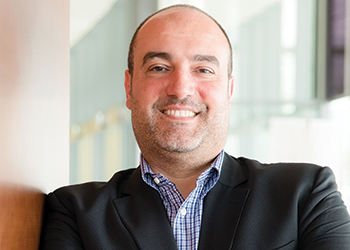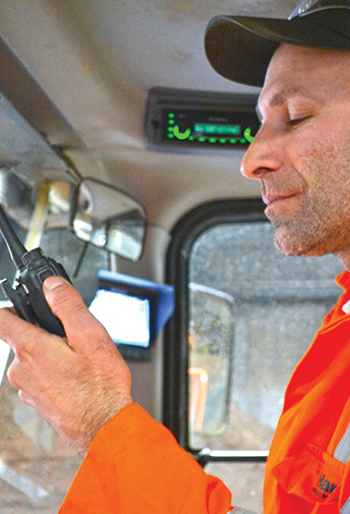
 Two-way radios improve safety on site.
Two-way radios improve safety on site.
RUTH NIXON, managing director of Zycomm*, discusses the role of effective communication in the construction industry, while taking a closer look at two-way radios.
Technology is changing the world at a remarkable pace, and the communications industry is no different. It goes without saying that communication is essential to all business activities; and it enables an organisation to improve operational effectiveness.
With traffic and population on an upward trend, the demand for construction doesn’t look like stopping. Good communication is integral to its success, and vital to the successful completion of any construction project. It can help improve teamwork and contribute to a better project, whereas poor communication can often result in delays and problems.
Construction projects are often very complex, requiring the active participation and communication of all involved. A construction project has an enormous number of “moving parts”. There are many people involved in the construction process – architects, general contractors, subcontractors, engineers, designers, and suppliers, to name a few. A successful project demands that the professionals involved are experienced, have the same mind-set, are team players and most importantly, communicate effectively.
Given that construction is such a fragmented and dynamic sector, the challenges of communicating effectively are great. Nevertheless, addressing communication in the industry can be seen as integral for improving the industry in the future.
It’s important to establish clear lines of communication and determine a chain of command for communication on a construction project. These are typically spelled out in the contract documents.
It is necessary to choose the best communication method, as we communicate in a number of ways every day, both verbally and non-verbally. Texting, talking on the phone and in person, not to mention sending emails are all effective methods. On the construction site, communication on a more practical basis is done through signs, drawings, hand signals and meetings.
 |
|
Two-way radios ... more reliable than mobile phones. |
As you’d expect, all methods of communication have their advantages and disadvantages.
Undoubtedly, one of the most important methods is two-way radios. The most obvious point to begin with is that two-way radios improve safety on site, offering instant communications, at the push of a button. Busy and often loud, construction sites are full of hazards that can be easily avoided, and one of the most important tools in keeping everyone safe is good communication. Especially in an emergency, it’s vital to alert everyone quickly and efficiently if there is a danger or risk to their safety.
Two-way radios have emergency features such as – man down, lone worker and emergency button (lone worker safety – compliance with health and safety act 1974 – and hazardous working). These are very important in meeting safety standards. These also enable people to talk to one person, or a group of people all at once, enabling faster response in important situations.
Two-way radios are more efficient and easier to use than mobile phones, not to mention more reliable, as they don’t lose signals at the crucial moments. They don’t hinder productivity, and there’s no need to take your work gloves off. Multiple staff can be dispatched or relocated promptly without having to be called individually, greatly reducing go-between time. Also, two-way radios can improve site access and control.
Unlike a mobile phone, you don’t have to wait for a call to connect, nor do you have to spend time dialling the right number.
They offer clear and reliable audio, allowing the message to be received clearly and be understood.
If you want to communicate via other methods, two-way radios can still help thanks to many featuring text function for short messages.
A construction site is often a very hectic place and as well as many people walking around, there are often diggers, cranes and other vehicles being driven within the area. It is not only dangerous to use a mobile phone whilst driving any vehicle, it is also illegal. A two-way radio is a simple solution to this issue. They are easy to use whilst driving and perfectly within the law.
Furthermore, they have low operating expenses, as there is no line rental or ongoing costs, just initial hiring costs.
They are incredibly robust and will stand the test of time, with water-, dust- and splash-proof options for all environments.
* Zycomm have been providing UK businesses with professional two-way radio and communication solutions for over 35 years. Its ever-evolving range of communication products and services include professional licensed and licence-free two-way radios (walkie talkies), mobile vehicle radios, repeater base stations, trunked radio systems and radio accessories to meet each individual customer’s requirements.





















_0001.jpg)


.jpg)
















.jpg)








.jpg)



